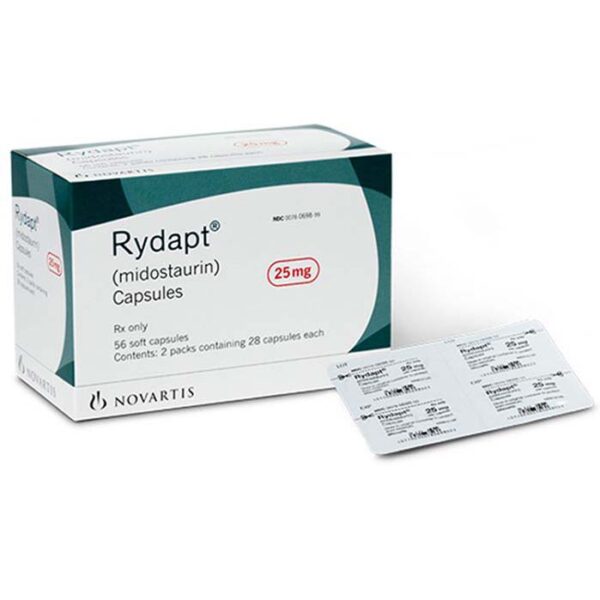
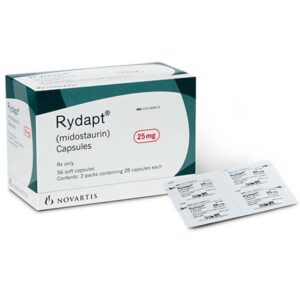
Buy Rydapt (midostaurin) Online
$14,685.00
DISEASE INDICATIONS: Leukemia
MANUFACTURER: Novartis Europharm Limited
USAGE: Oral
MEDICINE APPROVED BY:
European Medical Agency (EMA)
Food and Drug Administration (FDA)
Health Canada
Therapeutic Goods Administration (TGA)
Medsafe (NZ)
Rydapt (midostaurin) is prescribed to treat newly diagnosed acute myeloid leukemia (AML), aggressive systemic mastocytosis (ASM), systemic mastocytosis with associated hematological neoplasm (SM-AHN), or mast cell leukemia (MCL) in patients.
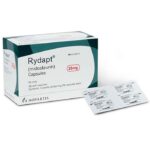
Buy Rydapt (midostaurin) Online
$14,685.00
- Description
- Additional information
- Reviews (0)
Description
What is Rydapt (midostaurin) for?
Rydapt (midostaurin) is a drug used in the treatment of acute myeloid leukemia (AML) in adult patients with a specific genetic mutation called a FLT3 mutation. It is also used in combination with chemotherapy for the treatment of aggressive systemic mastocytosis, systemic mastocytosis with associated hematological neoplasm, and mast cell leukemia. Rydapt works by inhibiting certain enzymes that help leukemia cells grow and divide, thereby slowing or stopping the growth of cancer cells. It is available in capsule form and is taken orally.
How does Rydapt (midostaurin) work?
Rydapt (midostaurin) works by inhibiting certain enzymes that are important for the growth and division of cancer cells. This drug targets a group of enzymes called tyrosine kinases, including FLT3 (fms-like tyrosine kinase 3) and KIT (CD117), which are often overactive in cancer cells. By inhibiting these enzymes, Rydapt interferes with the signals that drive the growth and survival of these cancer cells and ultimately slows or stop their growth.
Specifically, in acute myeloid leukemia (AML) patients with a specific genetic mutation called a FLT3 mutation, Rydapt works by inhibiting the overactive FLT3 enzyme, which is believed to play a key role in the development and progression of AML. By inhibiting FLT3, Rydapt can slow down or stop the growth of cancer cells, which in turn may prolong survival and increase the likelihood of achieving remission.
How is Rydapt (midostaurin) taken?
Rydapt (midostaurin) comes in the form of capsules and is taken orally with food. The recommended dose is generally 50 mg twice a day for 28-day treatment cycles. The capsules should be swallowed whole and not crushed, chewed, or opened.
It is important to follow the dosing instructions provided by the healthcare provider, as the dosage and treatment duration may vary depending on the condition being treated, the patient’s response to the drug, and other factors.
If a dose of Rydapt is missed, it should be taken as soon as possible, unless it is already close to the next scheduled dose. In that case, the missed dose should be skipped and the regular dosing schedule should be resumed. It is not recommended to take a double dose of Rydapt to make up for a missed dose.
Patients should also avoid grapefruit or grapefruit juice while taking Rydapt, as they may increase the level of the drug in the bloodstream and increase the risk of side effects.
Are there any known side effects of Rydapt (midostaurin)?
Yes, there are known side effects of Rydapt (midostaurin), and some of the common ones include:
– Nausea, vomiting, and diarrhea
– Fatigue or weakness
– Mouth sores
– Rash or itching
– Headache
– Fever
– Low blood cell counts (anemia, neutropenia, thrombocytopenia)
– Increased risk of bleeding
– Elevated liver enzymes
– Fluid retention
Some patients may also experience more serious side effects, such as severe allergic reactions, heart problems, or pulmonary toxicity. Women who are pregnant or breastfeeding should not take Rydapt, as it may harm the developing fetus.
Patients should report any new or worsening symptoms to their healthcare provider promptly. It is important to monitor blood counts, liver function, and heart function regularly during treatment with Rydapt.
Clinical trials
A study involving 717 previously untreated patients established the safety and efficacy of Rydapt (midostaurin) for AML patients. Although a specific median survival rate could not be determined, patients who received Rydapt in combination with chemotherapy survived longer than those who received chemotherapy alone. Additionally, patients who received the combination therapy lived for a median of 8.2 months without complications, in contrast to 3 months for those who received chemotherapy alone.
The main study for advanced systemic mastocytosis (SM) enrolled 116 adult patients with relapse or progression to 0, 1, or 2 prior regimens for SM, with 89 patients considered evaluable for response. Of these, 21% achieved complete (CR) or incomplete remission (ICR) within 6 cycles, and the response lasted for a median estimated time of 35.4 months (with a range of 6.6+ to 65.8+ months). The median time to response was 0.5 months, with a range of 0.1 to 3.0 months. The effectiveness of midostaurin was confirmed in other patient groups.
Additional information
| Package | 112 capsules of 25 mg |
|---|
Be the first to review “Buy Rydapt (midostaurin) Online” Cancel reply
Related Products
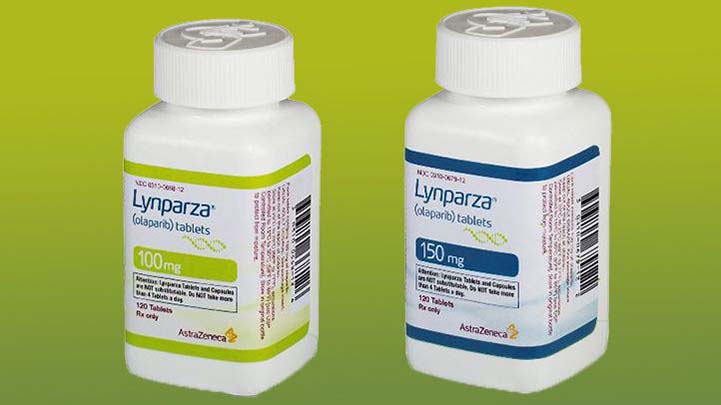

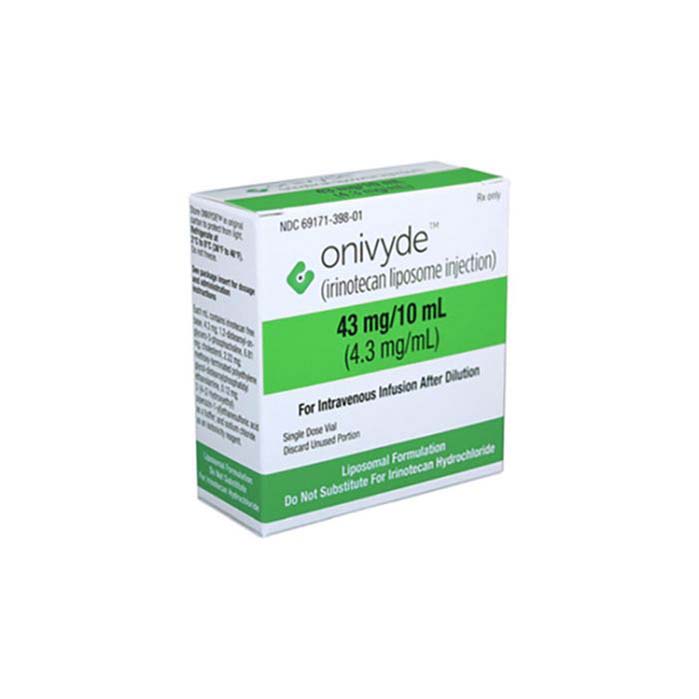
Buy Onivyde (irinotecan hydrochloride trihydrate) Online
Total Sales: 0
SKU: 971124
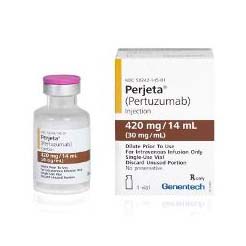




Reviews
There are no reviews yet.